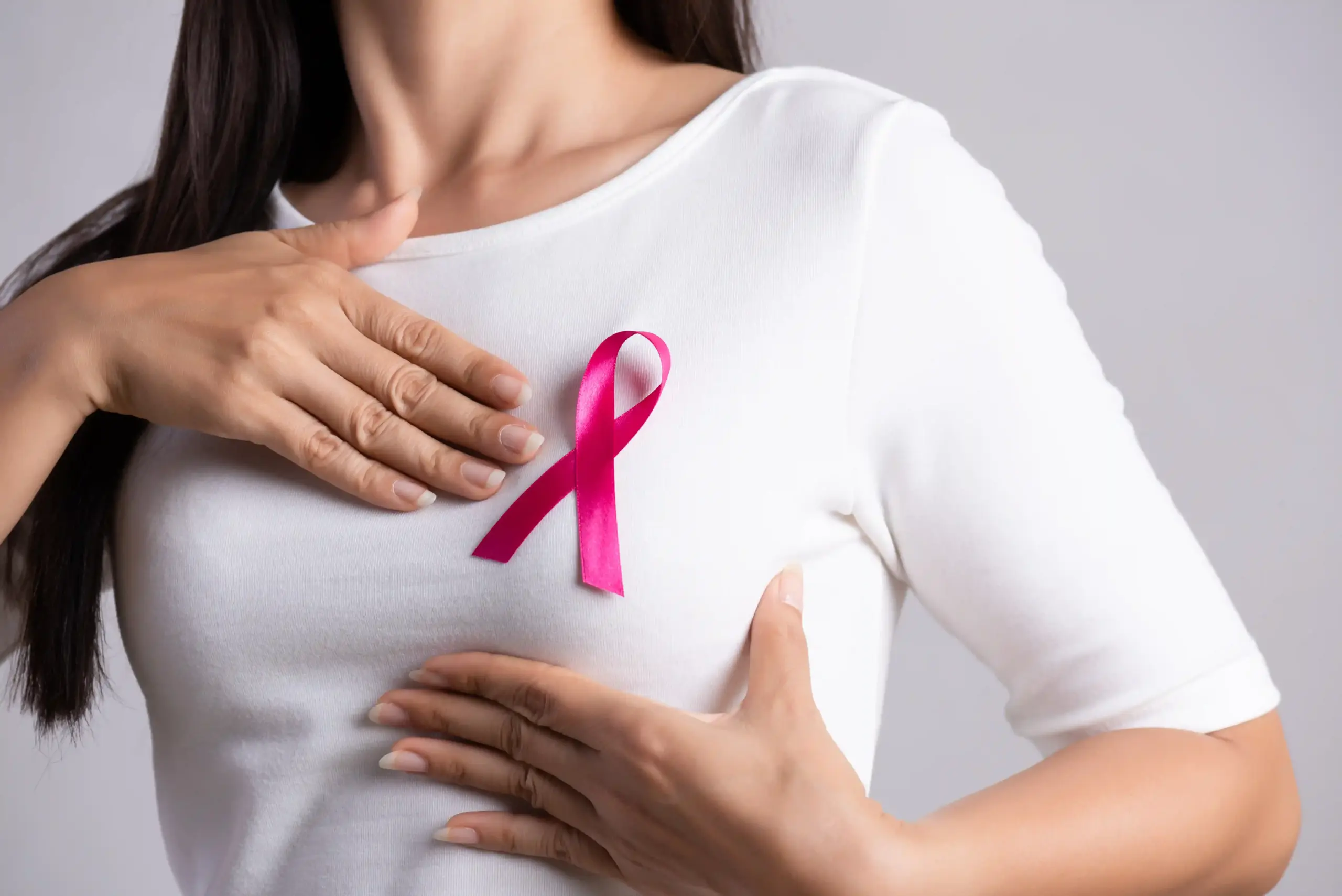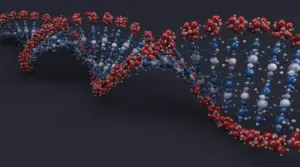Advanced Treatment and Care for Breast Cancer
At VS Hospitals you can find the best breast cancer specialist in Chennai, offering the advanced and affordable cancer treatment with leading Oncologists

Breast cancer
Breast cancer is one of the most common types of cancer worldwide, affecting both men and women, although it is far more prevalent in women. It occurs when cells in the breast begin to grow uncontrollably, forming a tumor or mass. Early detection and timely treatment are crucial in managing the condition, and the survival rate has improved significantly due to advancements in medical research and treatment options.
In this article, we will discuss the signs and symptoms, risk factors, prevention, and treatment of breast cancer, as well as the services available at VS Hospitals, one of the leading healthcare providers in Chennai.

Early Detection Saves Lives
Early detection and treatment are crucial for improving the chances of survival. If you notice any concerning symptoms, consult a healthcare provider immediately.
Signs and Symptoms
Lumps in the Breast
One of the earliest and most common symptoms of breast cancer is a lump or mass in the breast or underarm area. It’s essential to remember that not all lumps are cancerous, but any new or unusual lump should be examined by a healthcare provider.
Changes in Breast Shape or Size
A change in the shape, size, or appearance of one or both breasts may indicate a problem. This could include swelling, distortion, or a sudden increase in size.
Pain in the Breast
While pain is less common in the early stages of breast cancer, some women may experience discomfort or pain in the breast or nipple.
Nipple Discharge
Discharge from the nipple, particularly if it is clear or bloody, is another possible sign of breast cancer.
Skin Changes
Redness, dimpling, or thickening of the skin over the breast may indicate the presence of cancer.
Nipple Retraction
If the nipple turns inward or becomes inverted, it could be a sign of breast cancer.
Blood in Urine
Hematuria - pink, red, or dark urine, the most common symptom
Frequent Urination
Feeling the need to urinate frequently, even when bladder is not full
Painful Urination
Experiencing pain or burning sensation while urinating
Back or Pelvic Pain
Pain that occurs as the cancer grows and spreads
Unexplained Weight Loss
Significant weight loss not related to diet or exercise
Fatigue
Feeling unusually tired or weak without a clear cause
Meet Our Expert Breast Cancer Oncologists
Risk Factors
Smoking
Smoking is one of the leading causes of bladder cancer. Chemicals in tobacco smoke can damage the lining of the bladder, increasing the risk.

Gender
Men are at a higher risk of developing bladder cancer than women.

Chronic Bladder Infections or Inflammation
Conditions such as bladder infections and long-term bladder inflammation can increase the risk.

Exposure to Chemicals
Prolonged exposure to certain chemicals, especially those used in the dye industry, rubber production, and chemical manufacturing, increases the risk.

Gender
Women are far more likely to develop breast cancer than men.

Age
The risk of breast cancer increases with age, especially after 50 years.

Family History
A family history of breast cancer, especially in first-degree relatives (mother, sister, daughter), increases the risk.

Hormone Replacement Therapy
Long-term use of hormone replacement therapy can increase the risk of breast cancer.

Genetic Mutations
Certain inherited gene mutations, such as BRCA1 and BRCA2, can significantly increase the risk.

Personal History of Cancer
If you’ve had breast cancer in one breast, there is an increased risk of it occurring in the other breast.

Exposure to Radiation
Previous radiation treatments to the chest area, particularly during childhood or young adulthood, can increase breast cancer risk.

Lifestyle Factors
Being overweight, consuming alcohol, and lack of physical activity can all contribute to an increased risk.

Breast cancer
Diet and Nutrition
Prevention
Post-Surgical
Diagnosis
Key Services
Key Facilities
Proper diet and nutrition play an important role in maintaining overall health and may help reduce the risk of breast cancer. While no single food or supplement can prevent cancer, certain dietary habits can support the immune system and help in cancer prevention:
- High-Fiber Foods: Incorporating plenty of fruits, vegetables, whole grains, and legumes into your diet may help reduce the risk of cancer.
- Antioxidant-Rich Foods: Berries, citrus fruits, and leafy greens are rich in antioxidants, which can help protect the body’s cells from damage that may lead to cancer.
- Limit Alcohol Consumption: Excessive alcohol consumption is linked to an increased risk of breast cancer. It is advisable to limit alcohol intake to reduce the risk.
- Healthy Fats: Replace unhealthy trans fats with healthy fats from sources like olive oil, avocados, and nuts.
- Maintain a Healthy Weight: Being overweight or obese, particularly after menopause, is a risk factor for breast cancer. A balanced diet and regular exercise can help maintain a healthy weight.
- Phytoestrogens: Foods like soy products contain phytoestrogens, which are plant-based compounds that may help regulate hormone levels and reduce the risk of hormone-related breast cancer.
Eating a balanced, nutrient-rich diet along with maintaining a healthy lifestyle is essential for cancer prevention.
Although breast cancer cannot be entirely prevented, certain lifestyle choices can help reduce the risk:
- Regular Exercise: Engaging in physical activity, even walking for 30 minutes a day, can lower breast cancer risk.
- Breastfeeding: Women who breastfeed for a longer duration have a lower risk of developing breast cancer.
- Weight Management: Maintaining a healthy weight, especially after menopause, can reduce the risk of breast cancer.
- Avoiding Hormonal Exposure: Limiting the use of hormone replacement therapy and oral contraceptives can reduce the risk.
- Self-Breast Exams: Regularly performing self-breast exams can help detect any changes early. If you notice any changes, consult a healthcare professional for evaluation.
- Mammograms: Regular mammograms are essential for early detection, especially for women aged 40 and above.
By adopting these healthy lifestyle habits, you can reduce your risk of developing breast cancer.
After breast cancer surgery, patients may experience physical and emotional challenges that can affect their quality of life. Physiotherapy is an important part of post-surgical rehabilitation. It helps in:
- Improving Range of Motion: Post-surgical exercises can help restore movement in the arm and shoulder area, which may be affected after lymph node removal or mastectomy.
- Reducing Pain and Swelling: Physiotherapists can use techniques such as massage, manual therapy, and specific exercises to reduce swelling and pain in the chest, arm, and shoulder areas.
- Strengthening Muscles: Physiotherapy helps in regaining strength in the upper body, which can be weakened after surgery.
- Psychological Support: Physiotherapists also provide emotional support and help patients deal with post-operative stress and anxiety.
At VS Hospitals, the team of expert physiotherapists offers individualized rehabilitation programs to aid in the recovery process after breast cancer surgery.
Breast cancer diagnosis typically involves several tests and procedures to detect and confirm the presence of cancer:
- Mammogram: The most common screening test for breast cancer, mammograms can detect lumps or changes in the breast tissue.
- Ultrasound: Used to further examine breast tissue, especially if a lump is detected.
- Biopsy: A biopsy involves taking a small sample of tissue from the breast to test for cancer cells.
- Magnetic Resonance Imaging (MRI): MRI may be used in conjunction with other tests to provide a more detailed image of the breast tissue.
- CT Scans and PET Scans: These imaging tests may be used to check if the cancer has spread to other areas of the body.
The combination of these diagnostic tools helps healthcare providers determine the stage of the cancer and develop the most effective treatment plan.
VS Hospitals offers a range of specialized services for the treatment and care of breast cancer, including:
- Screening and Early Detection: Routine mammograms and clinical breast exams to detect breast cancer at an early stage.
- Surgical Oncology: Expert surgeons perform mastectomies, lumpectomies, and lymph node removals with the latest techniques.
- Chemotherapy and Radiation Therapy: A comprehensive cancer treatment plan including chemotherapy, radiotherapy, and immunotherapy.
- Palliative Care: For advanced-stage patients, VS Hospitals offers palliative care to manage pain and improve quality of life.
- Rehabilitation Services: Physiotherapy and counseling support for patients recovering from surgery and treatment.
VS Hospitals is equipped with world-class facilities designed to offer comprehensive care for breast cancer patients:
- State-of-the-art Diagnostic Equipment: VS Hospitals uses the latest technology, including digital mammography, MRI, and CT scans, to ensure accurate diagnosis.
- Multidisciplinary Cancer Care Team: A team of oncologists, surgeons, radiologists, and other specialists work together to develop the best treatment plan for each patient.
- Comfortable Patient Rooms: The hospital provides private, comfortable rooms for cancer patients, ensuring privacy and a calm environment for recovery.
- Cutting-edge Surgical Suites: Equipped with the latest technology, surgical suites at VS Hospitals offer the highest standard of care for breast cancer surgery.
Top Medical Facilities at Our Multispeciality Hospital – Here’s What Makes Us Different!
Ready to Begin Your Breast Cancer Care Journey?
Learn More About Breast Cancer Care
Frequently Asked Questions
Risk factors for breast cancer include gender, age, family history, hormonal treatments, genetic mutations (such as BRCA1/BRCA2), and lifestyle factors like diet, alcohol consumption, and obesity. Regular screenings and lifestyle changes can help reduce the risk of developing breast cancer.
At VS Hospitals, breast cancer treatment includes surgery, chemotherapy, radiation therapy, and immunotherapy. A multidisciplinary team ensures that each patient receives the most effective and personalized treatment, based on the stage and type of breast cancer.
While breast cancer cannot be entirely prevented, lifestyle changes such as maintaining a healthy weight, regular exercise, limiting alcohol intake, breastfeeding, and regular screenings can help reduce the risk of breast cancer. Early detection significantly improves the chances of successful treatment.
